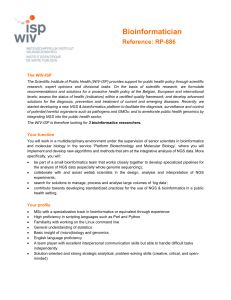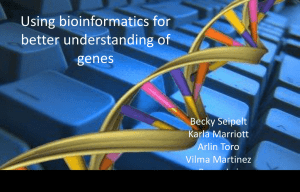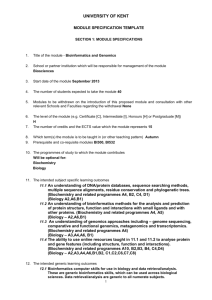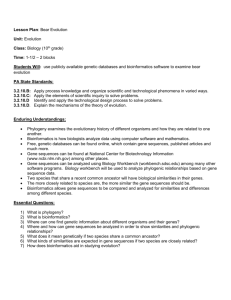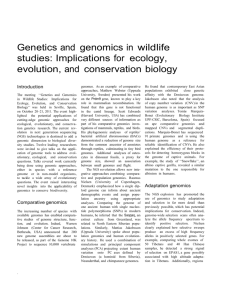Bioinformatics
advertisement
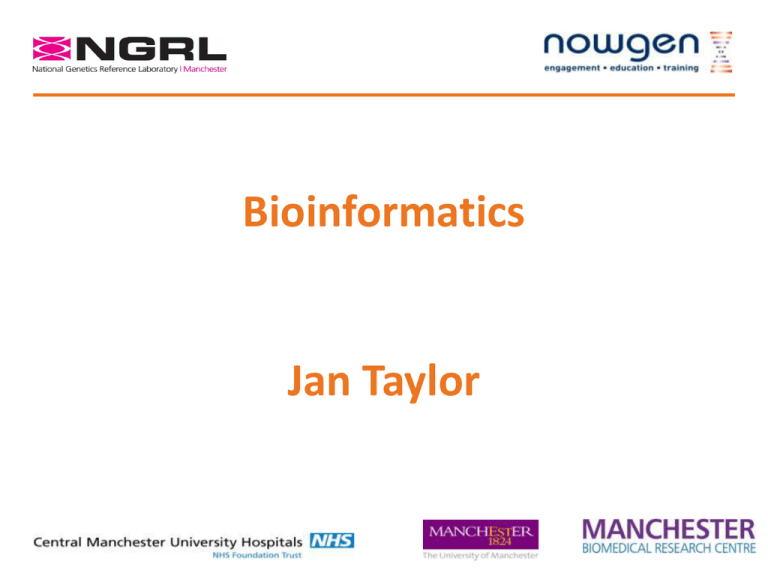
Bioinformatics Jan Taylor A bit about me Biochemistry and Molecular Biology Computer Science, Computational Biology Multivariate statistics Machine learning Experiment design Ontology/database development Programming What is bioinformatics anyway? Definition: Application of computational and analysis tools to the capture and interpretation of biological data What does that mean? Pattern recognition IT/Engineering Artificial Intelligence Network traffic improvement Statistics Storage solutions Text mining Biological networks GWAS Gene expression analysis Non-coding RNA Protein:protein interactions Annotation Epidemiology Protein folding Surface modelling ontologies Sequence alignment Homology searching Processor development Image processing Simulation Mathematics Databases 3D structure visualisation Personalised medicine Comparative genomics Evolutionary modelling Drug design Gene finding Challenges • Databases and data resources – Because we need to store and retrieve lots of data • Search and analysis tools – Because we need to infer function by comparison • Interfaces and visualisation tools – Because we need to look at lots of data Large scale biology Name Study of Genomics entire genome of an organism Transcriptomics expressed genes Exomics coding sequences Proteomics proteins within an organism Metabolomics metabolites within an organism Interactomics interactions between nucleotides, proteins and metabolites Connectomics neural pathways in the brain Pharmocogeno mics application of genomics to pharmacology Phenomics observable phenotypes Physiomics functional behaviour of an organism Exposomics organism’s environment Bibliomics literature concerning a topic Genetics and genomics • Genetics – Study of single genes, sequences, variation, inheritance and roles in health and disease • Genomics – Study of all the genes in an individual, their interactions with each other, the environment and roles in complex disease Genomic data • NGS technologies leading to massive growth of sequence data • NHS and research labs moving to using NGS for testing Analysis stages • Primary – Obtaining raw data • Secondary – Turning the raw data into genome sequence • Tertiary – Biological interpretation To ask biologically meaningful questions • What genes are in chromosomal region X and are linked to disease? • What genes cause the condition? • What is the normal function of gene Y? • What mutations have been linked to diseases A and B? • How does the mutation M alter gene function F? • What is the 3D structure of gene Y’s product? • Is gene Y expressed in condition C? • Are there any known variants of gene G? Clinical bioinformatics CLINICAL BIOINFORMATICS Personalised healthcare, Understanding of genetic, molecular and cellular basis of disease Application of bioinformatics • To clinical problems – Understanding disease – Treatment and management – Development of medicines – Tailoring treatment Growth Area • NGS becoming a diagnostic tool in genetics/genomics labs • Emergence for the need for ‘data scientists’ – beyond genomics • UK 100K Genome project – a driver for the NHS Career Prospects • Fantastic! • Clinical route: – MSC STP training program in Clinical Bioinformatics • Keen to recruit from mathematics and computer science backgrounds • Research route: - Many departments now have interdisciplinary research programs Top Tips • Teach yourself some biology – an understanding of the concepts and main principles of the application area • Communication skills are vital
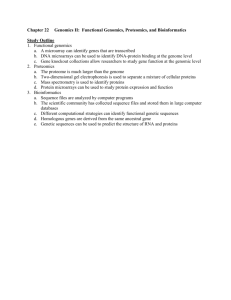
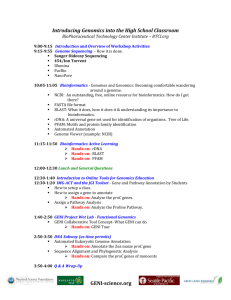
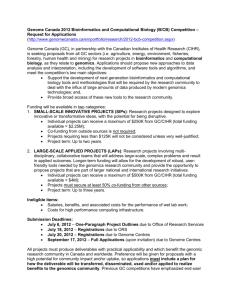
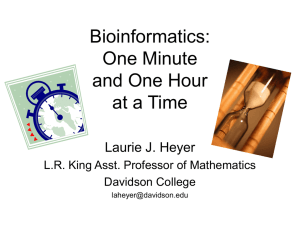
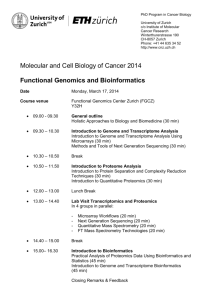
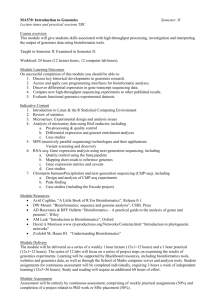
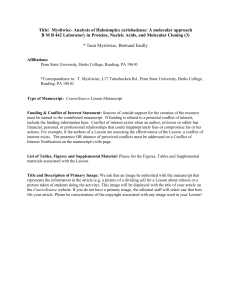
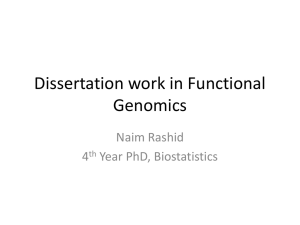
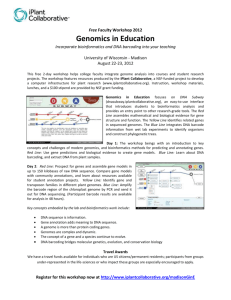
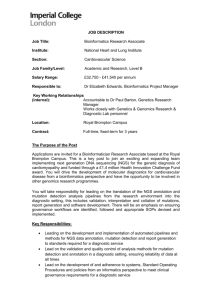
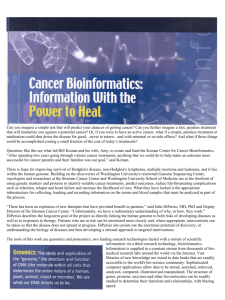
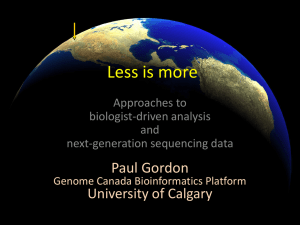
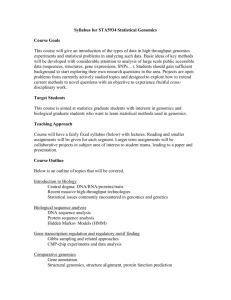
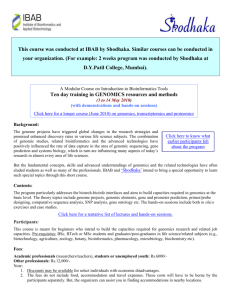
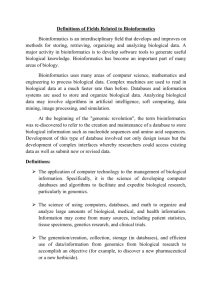
![9_Komlenac - start [kondor.etf.rs]](http://s2.studylib.net/store/data/005352037_1-bdc91b0717c49a75493200bca431c59c-300x300.png)
